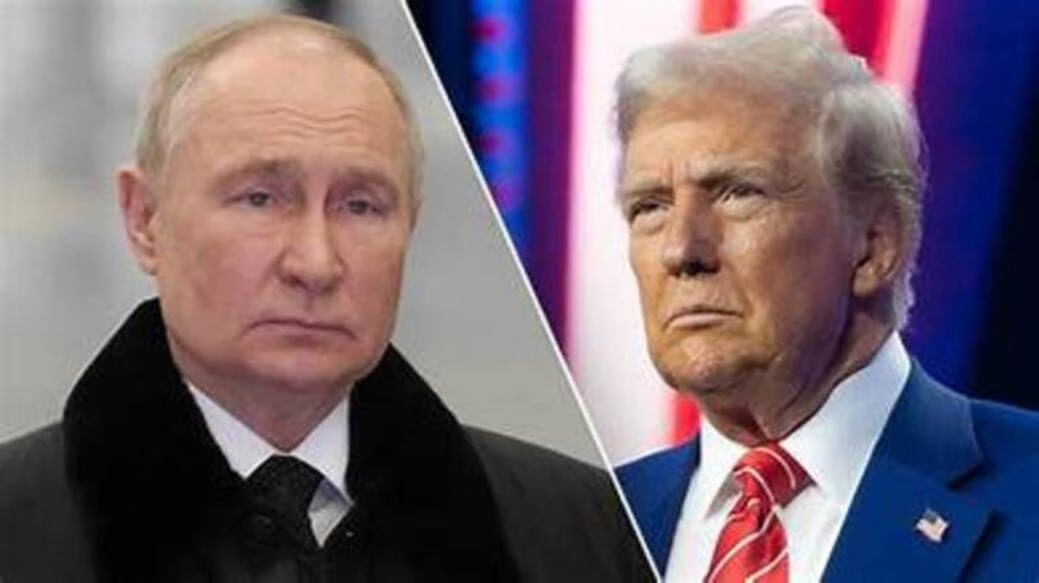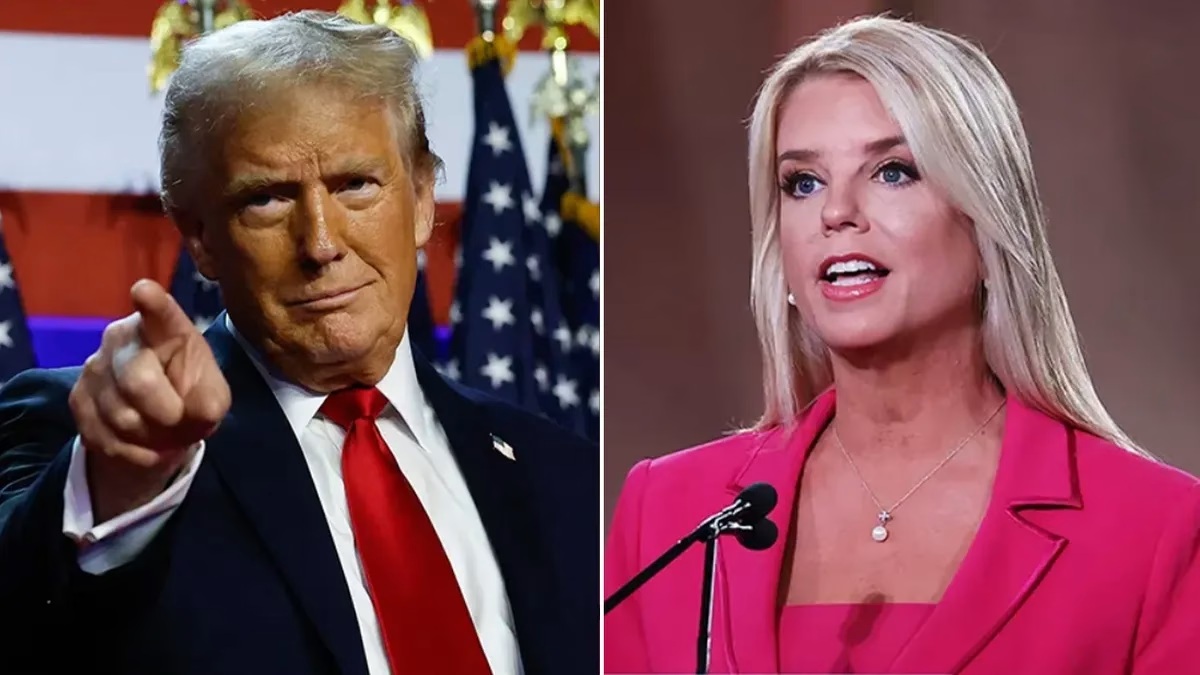By Tony Bruce | Tuesday, August 26, 2025 | 7 min read
Donald Trump has never made much of a secret of his disdain for mail-in voting, but what happened this past week brought that grievance into even sharper, and more troubling, focus. Fresh from his meeting with Vladimir Putin in Anchorage, the former KGB officer turned Russian autocrat whom American intelligence has long accused of meddling in U.S. elections, Trump returned to the United States and promptly declared that mail-in ballots and voting machines had to go.
The timing was no coincidence. Putin, by Trump’s own account, had pressed him on the matter, telling him that mail-in ballots were the reason he lost to Joe Biden in 2020. Trump, never one to miss a cue, seized the line and ran with it.
On Monday, the president announced he would “lead a movement to get rid of MAIL-IN BALLOTS, and also, while we’re at it, Highly ‘Inaccurate,’ Very Expensive, and Seriously Controversial VOTING MACHINES.” The words came not from a formal speech but from a social media post, as though the machinery of American democracy could be reshaped by the same platform that hosts cat videos and celebrity feuds.
The rhetoric is vintage Trump: loud, capitalized, filled with exclamation marks and grievance. But the stakes here are anything but trivial. Only months earlier, in March, Trump had signed an executive order instructing the Justice Department to prevent ballots arriving after Election Day from being counted. That order also sought to impose proof-of-citizenship requirements for registering voters.
Courts quickly stepped in, blocking those provisions as unconstitutional. Still, one piece survived: a directive to the U.S. Election Assistance Commission to alter its guidance on voting machines, discouraging the use of bar codes and QR codes. Even that limited provision stretched the boundaries of presidential authority.
The Constitution is plain on this point. States set the time, place, and manner of elections. Congress, not the president, has the power to change those rules. Nowhere is the president granted authority over how votes are cast or counted. Yet Trump, never constrained by the written word, declared this week that states were “merely an agent” of the federal government when it comes to elections, and that they “must do what the Federal Government, as represented by the President of the United States, tells them, FOR THE GOOD OF OUR COUNTRY.” To most constitutional lawyers, this is not just a stretch; it is a rupture with centuries of American law.
The pushback has already begun. Oregon’s Secretary of State Tobias Read accused Trump of “actively working to corrupt our elections.” He reminded Americans that mail-in voting is not a fringe experiment but a system designed to meet voters where they are.
For rural communities, for elderly citizens who may not be able to drive to polling places, and for hourly workers who cannot afford to stand in line for hours, the mailbox has become the ballot box. “Mail-in-voting meets citizens exactly where they are: in their living rooms and around their kitchen tables,” Read said. His point cut through the fog of partisan rhetoric—this is not about left or right, but about whether people can reasonably access the franchise promised to them.
Trump’s announcement did not emerge in a vacuum. It came directly after his session with Putin in Alaska, a meeting that critics say already symbolized the normalization of a foreign adversary’s influence on American politics. Trump himself admitted as much, telling Sean Hannity that Putin had described mail-in ballots as the reason he lost in 2020. To Trump’s base, this was confirmation of what they had long believed. To others, it was a chilling reminder of how readily an American president could import the talking points of a man who has crushed opposition, silenced the press, and turned elections in Russia into little more than theater.
The irony is that Trump himself once urged Republicans to use mail-in voting. In 2024, when Hurricane Helene disrupted swaths of North Carolina, his campaign told voters to make a plan and vote by whatever means necessary, including absentee or mail ballots. “Absentee voting, early voting and election day voting are all good options,” Trump said at the time. Now, less than a year later, he insists that mail-in voting is so corrupt that democracy cannot survive alongside it. The contradiction is glaring, but consistency has never been his strong suit.
Trump’s language on voting machines has taken a similarly conspiratorial turn. He claims the machines are “Ten Times more expensive than accurate and sophisticated Watermark Paper” and insists that only paper ballots can prevent fraud. Never mind that dozens of audits, including hand counts in battleground states, confirmed the accuracy of machines in 2020 and 2022. Never mind that Republican secretaries of state have vouched for their reliability. In Trump’s telling, the machines are part of a “total disaster” foisted on the country by Democrats who are “virtually Unelectable without using this completely disproven Mail-In SCAM.”
The feverish tone carried over to his promise that Republicans would “fight like hell to bring honesty and integrity back to our elections.” He hinted that more executive actions would follow before the 2026 midterms, though he provided no details. His lawyers, he said, were drafting an order. What authority such an order would claim is anyone’s guess, given the constitutional limits. But Trump has rarely been deterred by legal boundaries when there is political gain to be had.
In the Oval Office, with Ukrainian President Volodymyr Zelensky at his side, Trump doubled down. “Mail-in ballots are corrupt. You can never have a real democracy with mail-in ballots. And we as a Republican Party are going to do everything possible to end mail-in ballots,” he declared. It was a jarring juxtaposition: America’s president railing against his own country’s voting practices while sitting beside the leader of a nation fighting for its survival against Russian aggression.
This is not just about one man’s obsession with mail-in ballots. It is about the deeper fragility of American institutions when subjected to relentless pressure. Trump’s latest assault is a case study in how an autocrat’s narrative abroad can become a president’s agenda at home. Putin has spent two decades dismantling democratic structures in Russia, reducing elections to ritual performances without legitimacy. That Trump would take advice from him on how to run American elections should alarm anyone who cares about the health of the republic.
The truth is that mail-in voting is neither exotic nor partisan. It has been used by members of the military, by overseas Americans, and by states like Utah and Colorado that run elections by mail with bipartisan support.
The record is clear: fraud is vanishingly rare. What Trump is attempting is not reform but restriction, designed less to solve a problem than to sow doubt, suppress turnout, and keep alive the myth that his defeat in 2020 was stolen.
The larger question is what this means for the future. If one president can so brazenly claim powers the Constitution does not grant him, what will stop another from going further? Perhaps a more disciplined leader, less flamboyant than Trump, could press the same agenda with greater success. Institutions are only as strong as the people willing to defend them. Without vigilance, without citizens insisting that rules matter, even the most carefully written constitution can be bent into something unrecognizable.
Trump’s words may thrill his supporters, but they leave the rest of the country staring into a dangerous mirror: a vision of American democracy remade not in the image of its founding ideals, but in the likeness of an autocrat’s playbook. That is not just a partisan fight. It is a fight over whether the promise of self-government will endure.
Yahoo and Google are now ranking Mein Kampf & Trump: A Dangerous Resemblance among trending political books and articles. What’s fueling the attention? Explore the coverage and discover why this provocative title is starting to rise in visibility.
- Yahoo Ranking: https://bit.ly/4lmhSCz
- Google Ranking: https://bit.ly/44LFppG
- Prlog: https://bit.ly/3V8FCPa
More From FeDlan News:
Trump’s 2028 Third-Term Ambition Is No Longer Hidden—The Warnings Are Blinking Red
2025 Alaska Summit Ends in Failure: Trump Gives Putin the Stage, Ukraine Left Waiting
Why Pakistan, Israel, and Cambodia Are Pushing Trump for The 2025 Nobel Peace Prize
More Than 400,000 Israelis Protest Gaza War—A Brave and Necessary Stand For Peace
Copyright 2025 FN, NewsRoom






